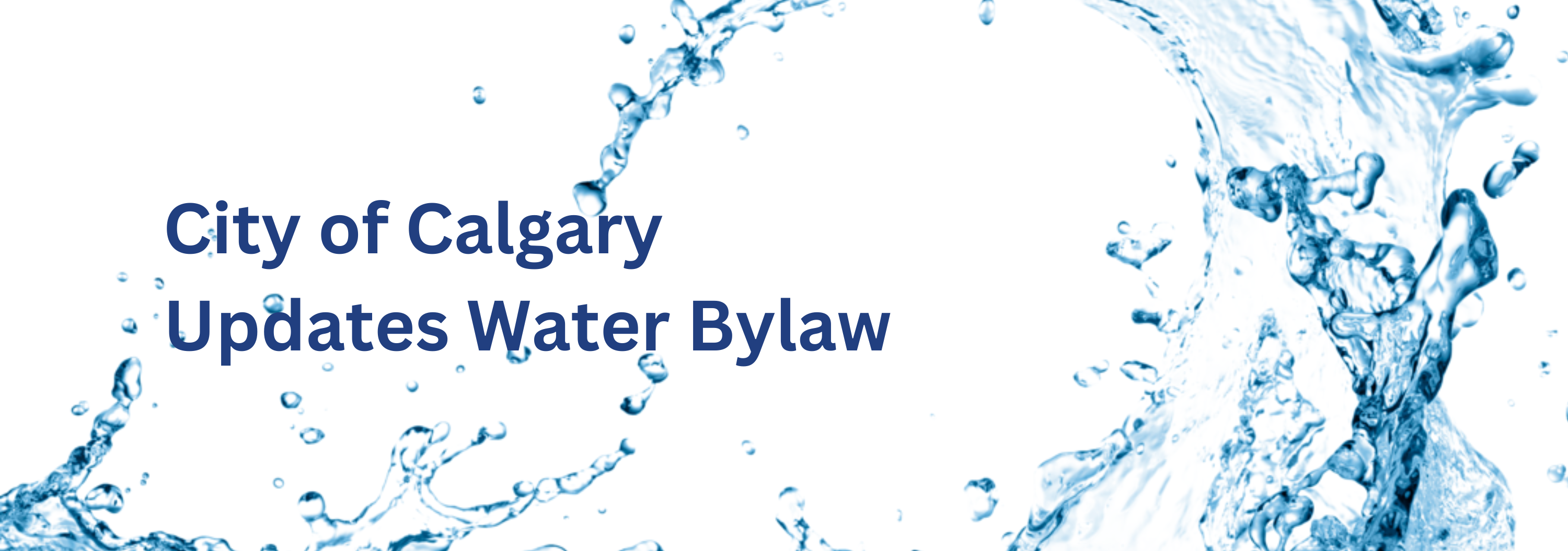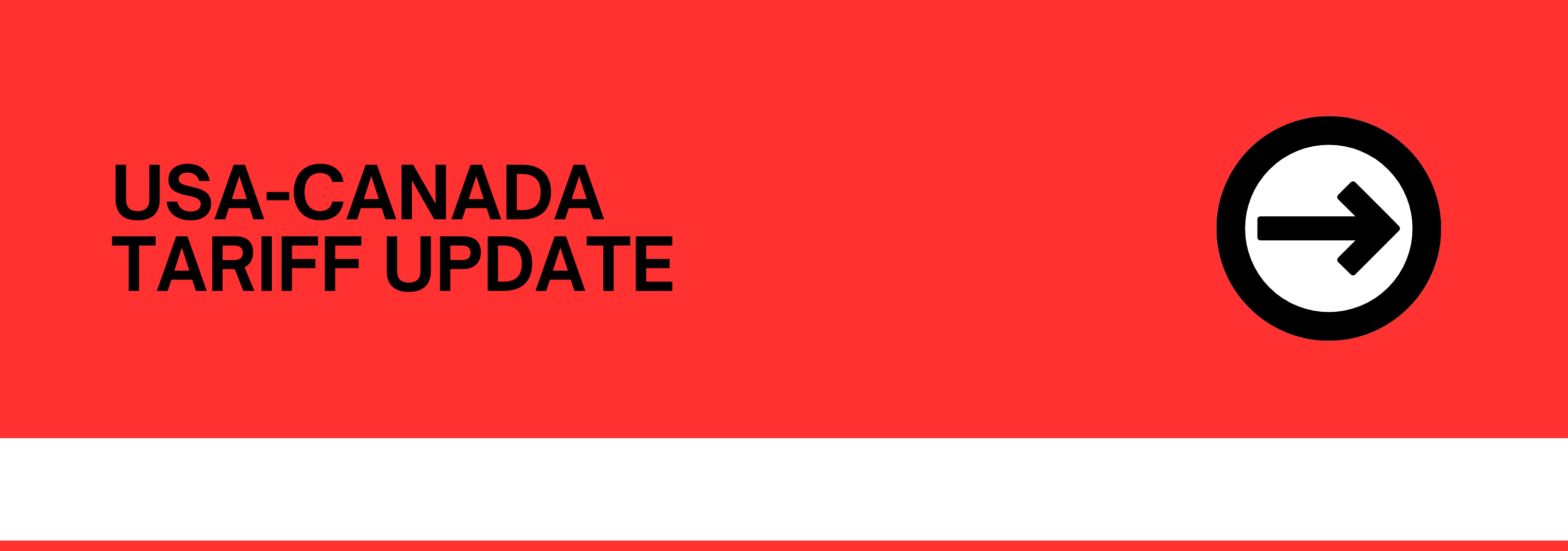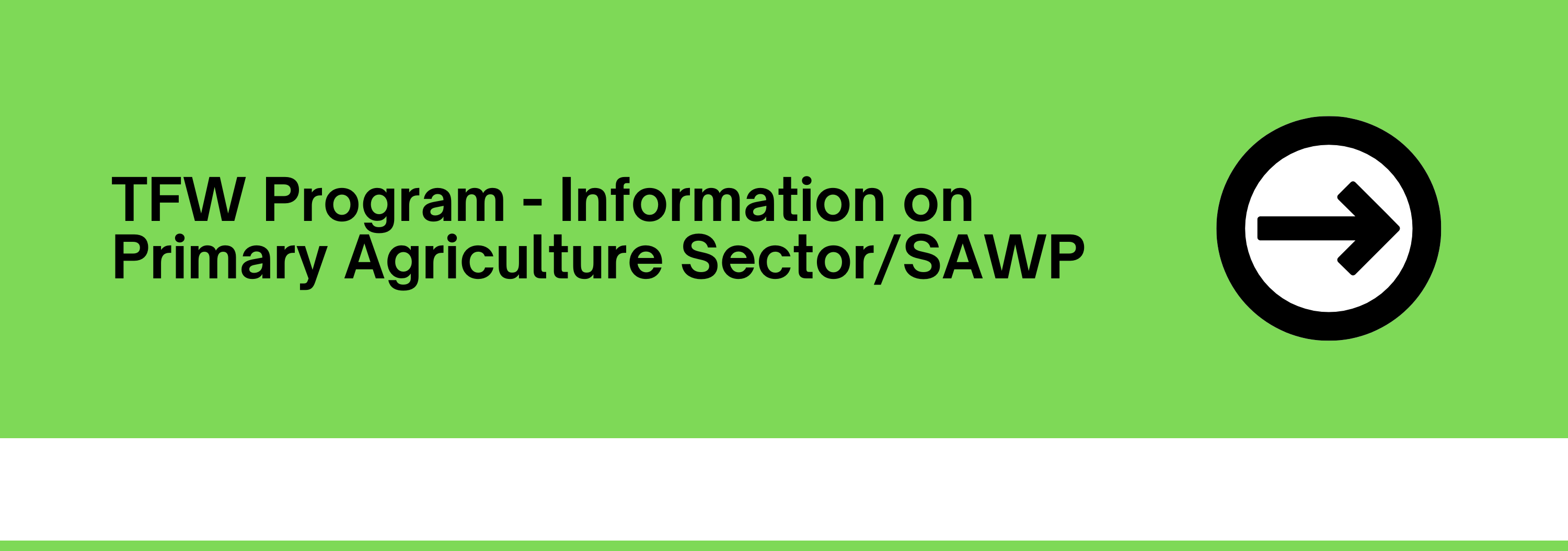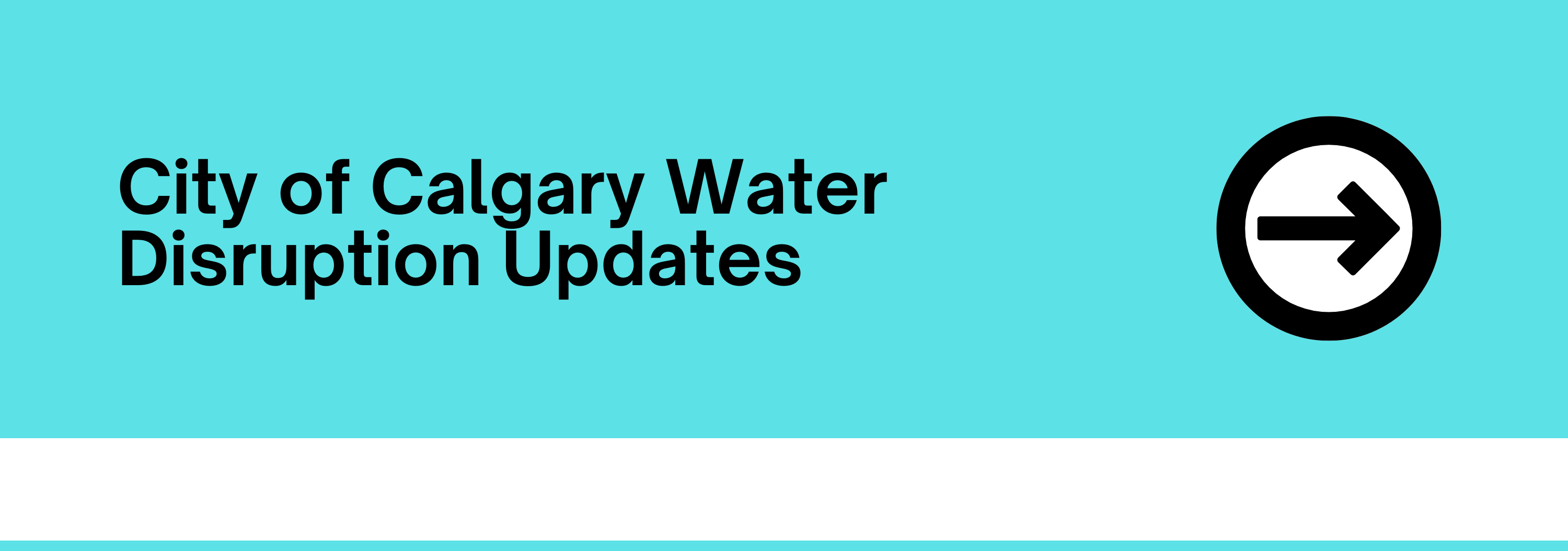August 23, 2024
As you may have heard in the media, The City is preparing to undertake urgent repairs of the Bearspaw South Feeder Main to maintain the health and stability of Calgary’s water system. To complete these repairs, we must once again take the Bearspaw South Feeder Main out of service.
Unfortunately, this means that starting on Monday August 26th at 12:01 am we need a temporary return to Stage 4 Outdoor Water Restrictions. We will also be asking businesses and residents to limit their indoor water use like we did in June. This work is expected to be complete by the end of September.
About Stage 4 Outdoor Water Restrictions
Stage 4 Outdoor Water Restrictions prohibits all outdoor potable water use including:
- Watering lawns, gardens, flowers, trees, and shrubs using city water
- Washing down any outdoor surfaces, including exterior building surfaces, windows, sidewalks, driveways, or walkways of any sort (unless your business requires it for health and safety reasons)
- Filling outdoor decorative features, fountains, pools, or hot tubs
- Using potable water for construction purposes such as grading, compaction, or dust control.
Non-potable river water pick-up locations
During these Stage 4 Outdoor Water Restrictions, The City will be reopening non-potable river water pick up locations with designated hours to support businesses and residents.
Non-potable water will be available for collection from three sites beginning August 26th:
Hours of operation will be 5am to 7pm daily for commercial use, and 4pm to 7pm daily for residential use.
Indoor water use reductions
In addition to the Stage 4 Outdoor Water Restrictions, we are also asking residents and businesses to reduce their indoor water use by 25 per cent to ensure that we have enough water to meet essential needs until the repairs are complete.
About the upcoming repairs
After the initial June break and hot spot repairs were completed and the feeder main returned to service, we used a device called a PipeDiver to do an inspection of the entire length of the feeder main, which is 10.4 kilometres.
Our teams have been working alongside external experts to analyze the PipeDiver data. The data has revealed several new locations that need urgent repair. Some of these spots need to be repaired during this upcoming repair phase, while others will be addressed in our medium-to-long-term pipe rehabilitation plans.
While the repairs are being completed, the Bearspaw South Feeder Main will be offline. Without this feeder main, Calgary’s available supply of treated water is greatly diminished. We need to work together to ensure enough water remains available for everyone, as well as for critical uses like hospitals and firefighting.
Timing of the repairs
These new repair locations are places where we are concerned that the pipe is at risk of breaking in the near term. These repairs will maintain service until a comprehensive rehabilitation plan is implemented.
Timing was also influenced by the need to reduce reliance on the Glenmore Treatment Plant before winter water storage becomes critical in September. It’s important to understand that these repairs are planned, preventive, measures to maintain the pipe’s integrity until long-term solutions are finalized.
Please visit calgary.ca/watermainbreak for regular updates. You can also visit calgary.ca/savewateratwork for tips on how your business sector can conserve water.
Stage 4 Outdoor Water Restrictions for Business - PDF
August 20, 2024
It's Crunch Time!
Landscape Alberta is deeply concerned for the well-being of its Calgary based member companies and their employees’ livelihoods if they are unable to work through another round of stage 4 water restrictions. The City of Calgary will essentially shut down an entire industry during one of the busiest points of the year.
With immediate repairs required by the City of Calgary they have all but ended the landscape season for many in the area. Nearly 50% of the 2024 landscape season will now be lost. Most companies are reporting the need for widespread layoffs (40-60% of staff).
Landscape Alberta has requested the following main items from the mayor and city council:
1. The landscape industry be permitted to operate at Stage 3 rules regarding watering for establishment of new plants and for construction activities (i.e. pouring and cutting concrete) (if an industry exemption isn’t permitted, find a outdoor watering schedule that works or reduce water in other areas). Current data shows the landscape sector uses less than 1% of total daily water estimates.
2. Remove all water restrictions ahead of shutdown to allow for increased watering schedules.
3. Amend city inspection standards and practices to allow for projects to be completed this year. (thus, unlocking progress or completion payments that would otherwise be delayed 6 months)
Unfortunately, the damage has already started. Layoffs have begun. Work has been cancelled. And the shut off hasn’t even happened yet.
Help us help the industry. Share, post and tag the city, mayor and councilors in your social media. Write or call your councilor EVERY SINGLE DAY. Set a timer, call each day until they find a solution that let’s the landscape industry work.
Have your family, friends, staff, suppliers, customers sign this petition to show support for an industry on the verge of disaster.
Tag @landscapeab / @cityofcalgary / @jyotigondek in your stories of how this pending water shutoff will impact your business, your people and your family. These grassroot stories make a difference and we can share and amplify each others messages for greater impact.
Templates and contact information at our website >> www.landscape-alberta.com.
August 9, 2024
As the city is preparing for a return to Stage 4 water restrictions, we want to remind you of our ongoing efforts and communication with the city on this issue. With that, we are resending the link to our Water Survey that was sent earlier in the season during the first round of water restrictions.
Also, a quick reminder about the importance of keeping track of your losses, extra expenses, lost or postponed work, etc. It could be crucially important in any future financial supports from government or in insurance claims or contract disputes.
Please take 5-7 minutes to fill out the survey here: https://forms.office.com/r/hWvQ0CSMpP
Share the survey within your network. To help us prepare for an upcoming meeting with the city, we need your data to show how much this is negatively impacting our industry.
For ongoing updates on this matter, please visit our Water Restrictions Update page on our website at https://www.landscape-alberta.com/city-of-calgary-water-disruption-updates/.
August 7, 2024
The City is preparing to undertake urgent repairs of the Bearspaw South Feeder Main later this month to maintain the health and stability of Calgary's water system.
Although The City completed repairs to the five sections of the pipe that needed urgent repairs in June, recent analyses from acoustic monitoring and PipeDiver results of the full 11 kilometres of the pipe revealed several new locations that need urgent repairs. Some of these new locations are places we're concerned the pipe is at risk of breaking in the near term, so we need to act quickly with repairs and are making plans to begin within a few weeks. Others will be addressed in our medium- to long-term pipe rehabilitation plans.
We anticipate this near-term work to begin August 26 and run through most of September (2-3 weeks). We are in the process of finalizing these dates and will share the exact timing when we have it
Benefits of Immediate Action
The timing of these repairs is very important to managing our water supply through the winter. Calgary is a big city on two small rivers. When the feeder main is out of service for repairs, we get most of our water from the Glenmore Reservoir (Elbow River). We need to act now so that we can be done the repairs in time for river flows to refill the Glenmore Reservoir so that there is enough water for later in the fall and winter when we draw on it heavily. We also need to minimize the risk of the feeder main breaking unexpectedly in winter when we would not be able to refill the reservoir because river flows are too low. This could put our water supply at risk within a matter of weeks.
Stage 4 Outdoor Water Restrictions and Indoor Water Conservation
To address these new locations, we will need to stop flow through the feeder main again and will be relying very heavily on the Glenmore Water Treatment Plant for most of our water while the repairs are completed. During this time, we know that we will not be able to supply enough water to meet normal demand.
Unfortunately, this means we need a temporary return to Stage 4 Outdoor Water Restrictions on August 26 and asking Calgarians to limit their indoor water use like we had in June.
Stage 4 Outdoor Water Restrictions bans all outdoor water use including:
- Watering lawns, gardens, flowers, trees, and shrubs using city water.
- Washing down any outdoor surfaces, including exterior building surfaces, windows, sidewalks, driveways, or walkways of any sort unless your business requires it for health and safety reasons.
- Filling outdoor decorative features, fountains, pools, or hot tubs.
- Using water for construction purposes such as grading, compaction, or dust control.
We will also be asking residents and businesses to reduce their indoor water use by 25 per cent to make sure that we have enough water to meet essential needs until the repairs are complete.
To support businesses during these Stage 4 Outdoor Water Restrictions, The City will be reopening non potable river water pick up locations with designated hours for businesses and residents. We also anticipate a fire ban will be implemented to mitigate fire risk during a time of critical water supply.
Until these repairs begin, Calgary remains in Stage 1 Outdoor Water Restrictions.
How your business can prepare
We want to give Calgarians as much notice as possible to plan for this work and associated restrictions. Your cooperation and understanding are crucial as we complete these critical repairs. We ask that you take the necessary steps to prepare for Stage 4 Outdoor Water Restrictions and a 25% reduction of indoor water usage without compromising health and safety. You know your business best, but to help you out we have prepared some guidance for different sectors (Web Link) and highlighted some preparedness actions below:
- Review staffing needs during repair timeframe
- Look for opportunities to shift work to conduct activities that do not use NEW water supply during repair timeframe ( eg: winterization)
- Accelerate and conduct maintenance checks in advance of Stage 4 or delay until after repairs.
- Utilize watering times in Stage 1 and consider preparing to shut down irrigation systems for Fall/Winter
- Make plans to access non-potable river water stations during repair timeframe
Leading up to the repairs, we will be hosting regular livestreams at calgary.ca/live . You can also visit Calgary.ca for the most up to date information. Thank you for your support and commitment to our community's well-being.
The City is committed to keeping all businesses and facilities open with everyone doing their part.
----
The City has offered to meet with Landscape Alberta and members to help clarify issues and to work together on ways to navigate this very difficult situation. If you would like to attend this meeting please
let us know. If you have ideas on ways we can help your business through this please also send them along as we need the collective brain power on this problem.
As the City states above we hope the advanced noticed does offer some room to pivot and plan, but understand this will come at a steep cost.
July 23, 2024
We are now in Stage 1 Outdoor Water Restrictions
Under Stage 1, outdoor watering with a sprinkler, hoses and in-ground irrigation system is now allowed up to
two hours per week during set days/times. Always check your soil moisture first and use only the water that is needed. Below is a high-level summary of what is allowed and not allowed during Stage 1. Further details can be found at
http://www.calgary.ca/restrictions, including exceptions for businesses for health and safety or for core business needs.
What you need to know during Stage 1 Outdoor Water Restrictions
|
What outdoor watering is allowed?
|
What outdoor watering is not allowed?
|
|
Using a sprinkler or irrigation system is limited to 2 hours/week according to a specific schedule that is determined by your property’s address:
- Addresses ending with an even number can water on Wednesday or Saturday.
- Addresses ending with an odd number can water on Thursdays or Sunday.
- Watering is limited to a maximum total of two hours from 4-7 a.m., 9-11 a.m. or 7-10 p.m.
Multi-unit residential or business properties with more than one address are allowed to water on one even day per week (Wednesday or Saturday for two hours total) and one odd day per week (Thursday or Sunday for two hours total), regardless of the number of units or irrigation zones.
Using handheld watering cans or hoses with automatic shut-off nozzles is allowed anytime.
Watering new grass or seed is allowed anytime.
Using water for construction purposes including dust suppression, compaction, concrete mixing and other construction-related activities, and maintenance activities for irrigation systems is allowed any day/time.
|
Washing down outdoor surfaces, windows, exterior building surfaces, sidewalks, driveways or walkways, unless for health and safety reasons (e.g.: to remove bodily fluids). As an alternative, use a broom to clean hard surfaces.
Washing your car on the driveway or street.
Filling fountains or decorative features.
|
More information
It’s important that all Calgarians do their part, and we thank you for your co-operation during this situation. While The City strives to take an education-first approach, violations of these restrictions may lead to fines starting at $400.
The City is monitoring Calgary’s water usage closely to determine what restrictions continue to be necessary. If you need more information, please visit
calgary.ca/restrictions
July 18, 2024
City of Calgary Moves to Stage 2 water restrictions!
Under Stage 2, outdoor watering with a sprinkler, soaker hoses and in-ground irrigation system is now allowed up to one hour per week during set days/times. Always check your soil moisture first and use only the water that is needed. Below is a high-level summary of what is allowed and not allowed during Stage 2. Further details can be found at Calgary.ca/restrictions , including exceptions for businesses for health and safety or for core business needs.
|
What outdoor watering is allowed?
|
What outdoor watering is not allowed?
|
|
Sprinklers, soaker hoses, or in-ground sprinkler systems (including testing) can be used one day per week during the following schedule that is determined by address.
- Addresses ending with an even number can water on Wednesday or Saturday.
- Addresses ending with an odd number can water on Thursday or Sunday.
- Watering is limited to a maximum total of one hour from 4 a.m.- 7 a.m.; or 9 a.m. -11 a.m.; or 7 p.m. -10 p.m.
Using handheld watering cans or hoses with a trigger spray nozzle/watering wand or drip irrigation with an automatic shuf off is allowed any day/time.
Truck mounted hoses and nozzles permitted for Bulk Water and HCU permit holders.
Watering new grass or seed is allowed any day/time.
Using water for construction purposes including dust suppression, compaction, concrete mixing and other construction-related activities, and maintenance activities for irrigation systems is allowed any day/time.
|
Washing down outdoor surfaces, windows, exterior building surfaces, sidewalks, driveways or walkways, unless for health and safety reasons (e.g.: to remove bodily fluids) As an alternative, use a broom to clean hard surfaces.
Washing your car with water on the driveway or street.
Filling fountains or decorative features.
|
Stage 2 details can be found here (pdf).
Although the outlook remains cautious the path appears to be pointing towards a move to Stage 1 by Monday.
July 15, 2024
The City of Calgary has provided a few updates today. First, at 2pm they turned on an additional pump at Bearspaw, if this added pressure holds for the first 72 hours we could be looking at an easing of restrictions by Thursday, July 18th, and perhaps return to normal by next Monday.
Second, they have now expanded the definition of construction to include maintenance and testing of irrigation systems (not regular usage though). Please see memo linked below from the City outlining this position. Please note the reporting of customer locations for daily work is not a suggestion endorsed by Landscape Alberta and we plan to advise the City against this action as too cumbersome.
Final_Letter to CPCIA re Maintenance of irrigation systems
July 10, 2024
We have the following memo (linked below) update from City of Calgary regarding Stage 3 water restrictions.
This does allow for watering of new sod, trees and shrubs (newly planted) and the continued watering using non-potable sources for other existing landscapes. It also does open the door to limited irrigation system usage.
The City has indicated that they are going to reviewing the current bylaw and will engage us in that the process, so we will have our chance to talk about the value of green infrastructure and hopefully arrive at a policy that allows the landscape industry to operate during drought situations moving forward.
We have asked for a timeline on return to Stage 1 or 2 and they have indicated they can not provide it at this time. We will of course continue to monitor and engage with the City. If you have questions or comments please feel free to reach out.
FINAL Letter to CPCIA and Landscape AB re allowable watering methods
Update July 6, 2024
The City took another big step in our recovery from the Bearspaw South water feeder main break moving Calgarians from Stage 4 water restrictions to Stage 3 and lifting the fire ban. With the progress made to this point, we have deactivated the Municipal Emergency Plan and ramped down the involvement of the Calgary Emergency Management Agency in this incident.
Under stage 3 water restrictions, the following is / isn’t allowed under the Water Utility Bylaw 40M2006:

Hand water (watering can) gardens, trees, shrubs

Water for construction purposes

Sprinklers

Hoses watering

Washing Outdoors (cars, windows, exterior building surfaces, sidewalks, etc)

Filling residential outdoor pools or hot tubs

Filling of fountains & decorative features

EXEMPTIONS

Public outdoor pools and spray parks will receive an exemption from Stage 3 restrictions and will re-open beginning today. We don’t have specific dates for when each feature or facility will re-open, but you can visit
calgary.ca/sprayparks for real-time status of City wading pools and spray parks. This exemption is to acknowledge that local forecasts point to potentially dangerous heat and we want to create an environment for all Calgarians to be safe from the heat. All street sweeping will also resume Monday.

FIRE BAN

The fire ban has been lifted. With the impacted pipe operating at 55% capacity while pressure is increased and the line is tested, the
City of Calgary Fire Department is confident in the water supply needed for emergencies.
Our daily updates are now completed. We will continue sharing developing news and important updates with Calgarians regularly. Please visit
calgary.ca/16AveWaterMain for updated information. You can also sign up to receive City of Calgary Newsroom updates at
newsroom.calgary.ca.
Update July 3, 2024
Indoor water restrictions are now lifted, we expect outdoor restriction to be lifted very soon. Please check https://www.calgary.ca/emergencies/critical-water-main-break-june-2024/water-main-break-updates.html for the most recent news/updates.
Also, a quick reminder about the importance of keeping track of your losses, extra expenses, lost or postponed work, etc. It could be crucially important in any future financial supports from government or in insurance claims or contract disputes.
Please take 5-7 minutes to fill this out. https://forms.office.com/r/hWvQ0CSMpP
Update June 20, 2024
The City of Calgary has entered the first phase of supplying Calgary’s construction industry with non-potable water so they can get back to work during this building season.
They are working closely with local contractors to open two locations on the Bow River to provide non-potable water for construction work only. This water is not safe for drinking and not for the general public. It is intended temporarily for commercial construction and landscaping activities as a way to support this industry through our current Stage 4 water restrictions.
Those eligible for accessing this non-potable water includes contractors working on capital projects for The City of Calgary and regional customers; contractors with active development agreements or permits; commercial landscaping companies; bulk water station users; and those with hydrant connection unit agreements.
Location of sites
Location: North Site: West Baker Park Boat Launch: 4320, Bow River Pathway
Starting June 20, 2024
Time 2 PM (when fully operational - from 7 a.m. - 7 p.m.)
Location: South Site: Ogden Boat Launch: 3303, Bow River Pathway
Starting June 21, 2024
Time TBC (when fully operational - from 7 a.m. - 7 p.m.)
Update from City of Calgary – June 19
We’re (the city) working closely with Calgary's construction industry, to open two locations over the next few days on the Bow River to provide non-potable water for construction work.
This water will be free of charge and will be the responsibility of the end user to ensure that water is appropriate for its intended application.
More information is available below (link) with more details rolling out today.
Calgary can now allow access to river water for businesses (msn.com)
The City also announced they hope to have repair work completed by July 5, if all goes well.
City of Calgary Extends Water Restrictions
The recent news that that water restrictions are now extended an additional 3-5 weeks and the City of Calgary (and surrounding areas) are now in a state of emergency is devasting news for the landscape horticulture industry.
Landscape Alberta is working on an advocacy campaign for industry to help limit the impact to small businesses and their employees.
In order to fully understand the impact this is having on members we’ve created a short survey to help assess the economic impact of this prolonged ban on outdoor water use. Please take 5-7 minutes to fill this out. https://forms.office.com/r/hWvQ0CSMpP
Landscape Alberta also has the following recommendations.
- Find an alternate water for pumping / purchasing large quantity of water. Many members are retrofitting 1000-gallon water totes into their vehicles to modify their work practices.
- Equip all vehicles, social media and websites with signage / messages that clearly state you are not using City water.
- Equip every vehicle with records of water source / purchase records to ensure quick proof can be provided to any bylaw officials or customers.
- Review force majeure clauses in contracts and any other ways to help mitigate losses.
- Connect with your business insurance provider about potential claim on business interruption coverage. They will often want details regarding lost revenue and what you’ve done to limit losses.
- Amend existing contracts to include warranty / watering services are null and void if Calgary (or municipality) enacts outdoor water restrictions/bans.
Please review the clarifications on Stage 4 water restrictions. Anything planted at final customer site is considered ‘sold’ and cannot be watered.
Landscape Alberta will be engaging with the City of Calgary (and others) on potential solutions to current water shortage and inquiring on behalf of industry with both the municipalities and provincial government on financial support for impacted businesses and employees.
To ensure you are up to date on all the work on this issue please sign up on this contact page: https://www.landscape-alberta.com/sign-up-for-city-of-calgary-water-disruption-updates/





